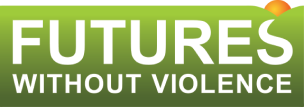Description
With the movement towards trauma-informed care, many community health center-based HIV, infectious disease, and sexual health programs and other Ryan White Funded HIV programs are looking for ways to better support their patients who are experiencing intimate partner and sexual violence (IPV/SV) and/or other intersecting forms of exploitation and abuse. HIV care practitioners see the ways that IPV/SV leads to worse health outcomes for their patients and makes it more difficult for patients to stay engaged in care. Building on the research on and recommendations for community health centers to address IPV, the CUES Universal Education approach for IPV response offers providers and patients the tools to have conversations about relationships, how they can affect health, and how to get help. Responding to the specific intersections of HIV/AIDS, intimate and gendered violence, and other forms of exploitation and abuse, a universal education approach allows providers to reach more patients as a form of both prevention and intervention, without needing to receive a disclosure. The CUES Universal Education approach requires partnerships between community based agencies (like domestic violence advocacy programs or community health worker models) and CHCs, so they can adopt a team-based response.
This learning collaborative will bring sites together to learn about the Universal Education approach to addressing violence in HIV programs, listen to survivors about how health systems can better meet their needs, connect with leaders in the field of HIV rights and harm reduction, and engage with strategies to ensure sustainability of efforts to address intimate forms of violence in the lives of their patients through partnerships with IPV survivor-serving, community-based organizations.
Learning Collaborative Session Dates/Times
- Learning Lab: Addressing IPV in CHCs who serve people living with HIV, January 27, 2022
- Listening Session: Supporting IPV Survivors who are Living with HIV, February 3, 2022
- Learning Lab: Partnership building between HIV/STI Programs and programs that provide safety planning services to IPV survivors, with field experts from the Positively Safe Project at the National Network to End Domestic Violence, February 10, 2022
- Implementation session: Implementation + Patient education tools to promote connection, safety, and reduce stigma, February 17, 2022
Facilitators:
- Surabhi Kukke, MPH, Health Partners on IPV and Exploitation
- Kate Vander Tuig, MPH, Health Partners on IPV and Exploitation
Guest Faculty:
- Kneeshe Parkinson, Co-Chair of International Community of Women Living with HIV North America (IWCNA), Founder of KneeshespeaksSTL
- Olga Irwin, Positive Women’s Network (PWN)-USA, policy mentor, Founding Member of Ohio Health Moderation Movement (OHMM)
- Ashley Slye, Positively Safe: Addressing the Intersection of HIV & Domestic Violence, National Network to End Domestic Violence (NNEDV)
If you have questions, please email: healthpartners@futureswithoutviolence.org


